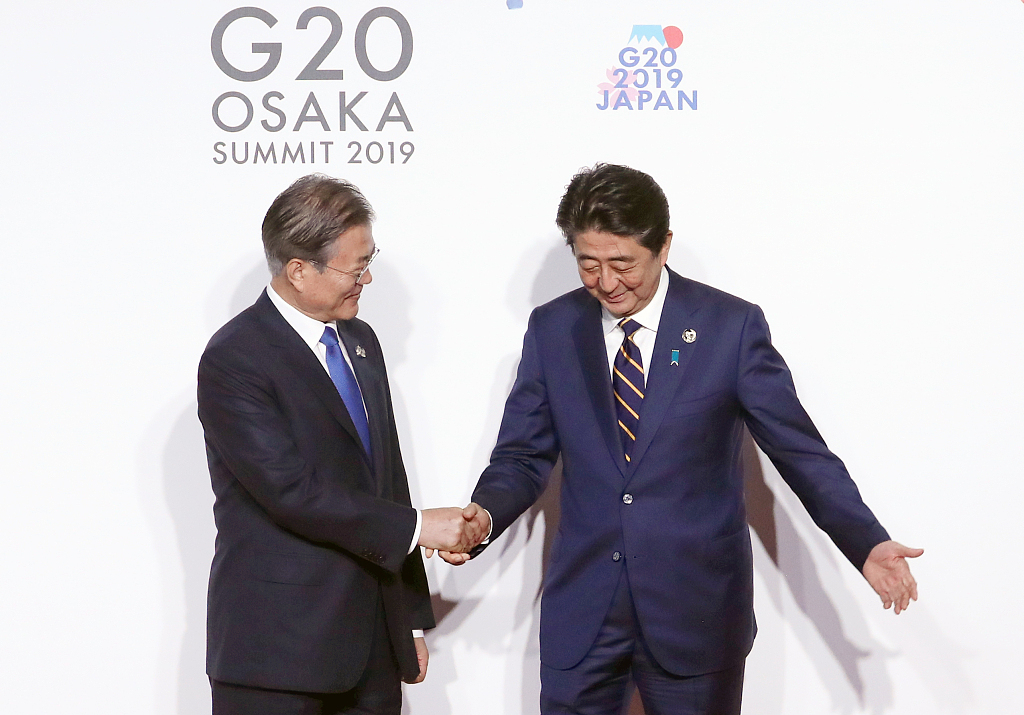

Japan announced Monday it would tighten regulations on the export to South Korea of several chemicals used in chip and smartphone production amid a row with Seoul on wartime forced labor.
The new rules, which take effect from July 4, come after South Korean courts ordered Japanese firms to compensate people forced into wartime labor, an issue Tokyo says was resolved when the countries resumed diplomatic relations decades ago.
"The export control system is built based on international relations of trust," Japan's Ministry of Economy, Trade and Industry (METI) said in announcing the move.
"After reviews by relevant ministries, it must be said that the relations of trust between Japan and South Korea have been significantly harmed," METI added.

South Korean President Moon Jae-in (L) and Japanese Prime Minister Shinzo Abe at the G20 Summit in Osaka, June 28, 2019. /VCG Photo
The new restrictions affect fluorinated polyimide, resist, and hydrogen fluoride, as well as transfer of manufacturing technologies, removing them from a list that effectively allowed expedited export.
It means that exporters will now have to apply for permission for each batch they wish to export to South Korea, a process that takes around 90 days each time, local media reported.
Park Tae-sung, a senior South Korean trade ministry official, said on Monday that Japan's decision to tighten curbs on tech material exports to South Korea violates WTO rules and Seoul would respond firmly, Reuters reported.
"This export control measure by Japan is a measure that is banned in principle according to WTO agreements. We find such a measure by the Japanese government regrettable," Park said.
Last month, Tokyo proposed the issue be put to arbitration under the terms of an agreement signed by the two countries in 1965, when ties were normalized.
South Korea countered with a proposal for local and Japanese firms to set up a voluntary compensation fund, which Tokyo flatly rejected as "unacceptable."
When relations were normalized, Tokyo agreed a reparations package that included grants and cheap loans intended to cover victims of various wartime policies.
Japan argues that package should have permanently resolved the issue.

Copyright © 2018 CGTN. Beijing ICP prepared NO.16065310-3
Copyright © 2018 CGTN. Beijing ICP prepared NO.16065310-3